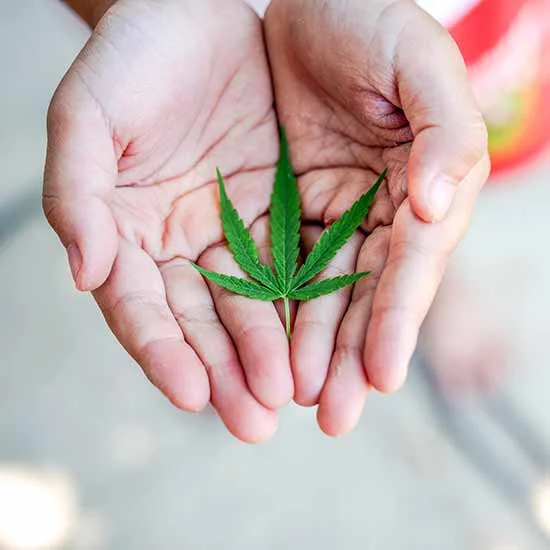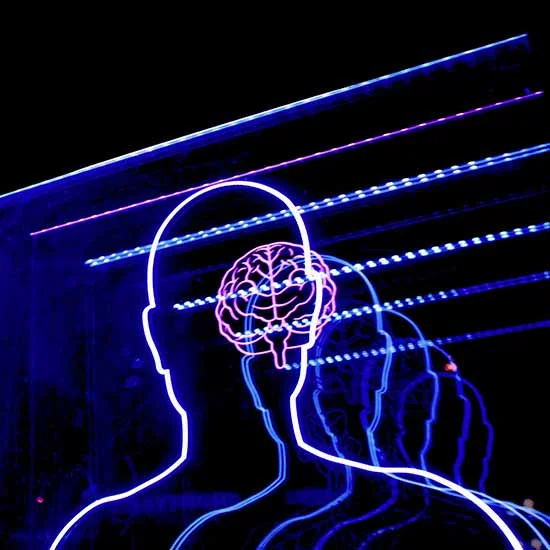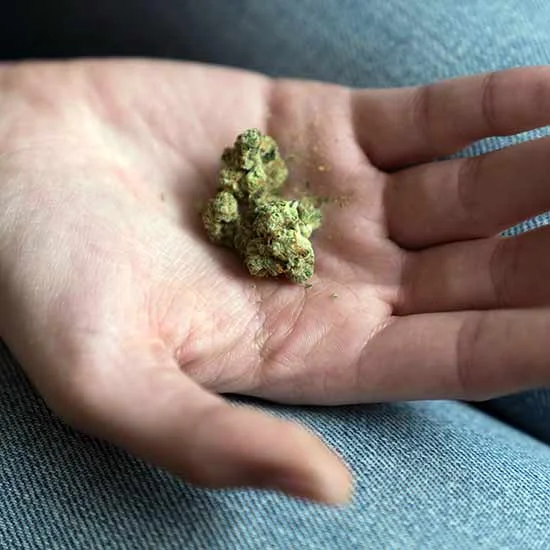Depression is a common struggle, affecting millions worldwide. Its pervasive impact on daily life can be profound, challenging individuals’ emotional well-being, relationships, and overall quality of life. In the search for relief, some people turn to alternative therapies, with cannabis emerging as a potential option. In this blog, we’ll delve into the complex landscape of depression, exploring its multifaceted causes and manifestations. We’ll also examine the role that cannabis can play in treating or mitigating this condition, shedding light on its potential benefits and limitations.
Throughout our discussion, we’ll explore various cannabis strains that have been associated with potential therapeutic effects for depression. From the uplifting effects of strains like Blue Dream to the calming properties of varieties such as Harlequin or OG Kush, we’ll consider how different strains may influence mood, stress levels, and overall well-being. However, alongside the potential benefits, we’ll also address the possible side effects and risks associated with cannabis use, emphasizing the importance of informed decision-making and responsible consumption practices.
Additionally, we’ll highlight some best practices for using cannabis as part of a comprehensive approach to depression management. From consulting healthcare professionals for personalized guidance to starting with small doses and monitoring effects closely, we’ll explore strategies aimed at maximizing the potential benefits of cannabis while minimizing risks. By navigating the nuanced terrain of depression and cannabis use with knowledge, mindfulness, and care, individuals can strive towards a more balanced and holistic approach to mental health and wellness.
Understanding the Causes of Depression
Depression is a multifaceted mental health condition influenced by a variety of factors, including:
Biological Factors
Genetic predisposition plays a significant role in the development of depression. Individuals with a family history of depression are at a higher risk of experiencing the condition themselves. Research has shown that specific genes may be linked to the susceptibility to depression. Additionally, imbalances in neurotransmitters, such as serotonin, dopamine, and norepinephrine, can contribute to depressive symptoms. These chemicals are crucial for regulating mood, and their imbalance can lead to the emotional and physical symptoms associated with depression. Hormonal changes, particularly in women, such as those occurring during the menstrual cycle, postpartum period, or menopause, can also affect mood and contribute to depression.

Psychological Factors
Psychological factors, such as past trauma, chronic stress, or low self-esteem, can increase vulnerability to depression. Experiences of childhood abuse, neglect, or the loss of a loved one can have long-lasting impacts on an individual’s mental health. Chronic stress from ongoing life challenges like relationship difficulties, work stress, or financial problems can overwhelm an individual’s ability to cope, leading to depressive episodes. Negative thinking patterns, such as persistent pessimism, self-criticism, or feelings of worthlessness, can also perpetuate depression.
Environmental Factors
Environmental factors, including socioeconomic status, living conditions, and access to social support networks, can impact mental health. Growing up in a disadvantaged or unstable environment can increase the risk of developing depression. Exposure to violence, neglect, or abuse, especially during formative years, can have lasting effects on emotional well-being. Lack of access to social support networks, including friends, family, or community resources, can leave individuals feeling isolated and unsupported, exacerbating depressive symptoms. Major life changes, such as moving, changing jobs, or retiring, can also disrupt stability and contribute to depression.
Medical Conditions
Certain medical conditions, such as chronic illnesses, neurological disorders, or hormonal imbalances, can increase the risk of depression. Chronic illnesses, such as diabetes, heart disease, or cancer, can be particularly distressing, leading to persistent pain, fatigue, and physical limitations that contribute to depression. Neurological disorders, such as Parkinson’s disease or multiple sclerosis, can affect brain function and mood. Hormonal imbalances, such as those seen in thyroid disorders or during pregnancy, can also disrupt brain chemistry and contribute to mood disturbances.
Substance Abuse
Substance abuse, including alcohol, drugs, or prescription medications, can exacerbate depressive symptoms or trigger depressive episodes. The use of substances can interfere with neurotransmitter function, worsening depression. Substance abuse can also lead to a cycle of dependency, where individuals use substances to cope with depression, only to find that their symptoms worsen over time. Withdrawal from substances can also cause significant mood disturbances, contributing to the overall burden of depression.
Sociocultural Factors
Sociocultural factors, such as societal expectations, cultural norms, and stigma surrounding mental illness, can influence how individuals perceive and cope with depression. Societal pressure to conform to certain roles or standards can contribute to stress and feelings of inadequacy. Cultural beliefs about mental health can impact whether individuals seek help and how they cope with their symptoms. Stigma and discrimination against mental illness can prevent individuals from seeking the support and treatment they need, exacerbating feelings of isolation and hopelessness.
Understanding the complex interplay of biological, psychological, environmental, and sociocultural factors can provide insights into the development and management of depression. By addressing these underlying causes and risk factors, individuals can take proactive steps to promote mental well-being and seek appropriate treatment and support.
Understanding Depression and Cannabis
Depression is characterized by persistent feelings of sadness and hopelessness, profoundly impacting daily functioning. Tasks that were once manageable become overwhelming, and activities that previously brought joy lose their appeal. This mental health condition affects not just the emotional state but also physical health, relationships, and overall quality of life. Traditional treatments include psychotherapy and medications, but these are not always effective for everyone. This is where cannabis, with its active compounds known as cannabinoids, enters the conversation. These cannabinoids interact with the body’s endocannabinoid system, which plays a critical role in regulating mood, stress response, and emotions.
Cannabis and Depression Management
By influencing the endocannabinoid system, cannabis can potentially alleviate depressive symptoms. Cannabinoids such as THC and CBD interact with receptors in the brain that regulate mood and emotional responses. This interaction can lead to a variety of effects, some of which may be beneficial for managing depression:

- THC (Tetrahydrocannabinol): Known for its psychoactive properties, THC can produce a sense of euphoria and relaxation. At low doses, it may help improve mood and reduce anxiety. However, higher doses can lead to increased anxiety and paranoia in some individuals, which can worsen depression
- CBD (Cannabidiol): Unlike THC, CBD is non-psychoactive and is often praised for its potential therapeutic benefits. Research suggests that CBD can help reduce anxiety, improve sleep, and provide neuroprotective effects, all of which can be beneficial for those with depression. CBD’s interaction with serotonin receptors, which are crucial for mood regulation, may also contribute to its antidepressant effects.
Despite these potential benefits, the efficacy of cannabis in managing depression varies among individuals. Factors such as the type of cannabis strain, dosage, method of consumption, and individual physiology can all influence the outcome. Therefore, it is essential to approach cannabis use with caution and under the supervision of a healthcare professional.

Personalized Approaches and Professional Guidance
Understanding the complexities of cannabis use in depression management underscores the importance of personalized approaches and professional guidance. Here are some key considerations:
- Consult with a Healthcare Provider: Before starting any cannabis-based treatment, it’s crucial to discuss it with a healthcare provider who is knowledgeable about both depression and cannabis. They can help determine the appropriate strain, dosage, and method of consumption based on your specific needs and medical history.
- Start Low and Go Slow: If you decide to use cannabis, start with a low dose to gauge how your body reacts. Gradually adjust the dosage as needed, and monitor your symptoms closely.
- Monitor and Adjust: Keep a journal to track your symptoms, side effects, and overall well-being. This information can help you and your healthcare provider make informed decisions about your treatment plan.
- Consider the Legal and Quality Aspects: Ensure that you are using cannabis products that are legal in your jurisdiction and come from a reputable source. Quality and composition can vary widely, affecting efficacy and safety.
Cannabis holds promise as a potential treatment for depression, but it is not a one-size-fits-all solution. Personalized care and professional guidance are crucial for maximizing benefits and minimizing risks. As research continues to evolve, it will be essential to stay informed and make decisions based on the latest scientific evidence and medical advice.
How Cannabis Influences the Endocannabinoid System
The endocannabinoid system (ECS) is a complex network of neurotransmitters, receptors, and enzymes found throughout the body. It plays a crucial role in regulating various physiological processes, including mood, stress response, appetite, pain perception, and memory. The ECS consists of endocannabinoids (cannabinoids produced by the body), cannabinoid receptors (CB1 and CB2), and enzymes that synthesize and degrade these endocannabinoids.

THC and the Endocannabinoid System
When cannabis compounds like THC (tetrahydrocannabinol) are consumed, they interact primarily with cannabinoid receptors known as CB1 and CB2.
- CB1 Receptors: These receptors are abundant in the brain and central nervous system. THC binds to CB1 receptors, leading to the psychoactive effects commonly associated with cannabis This interaction affects the release of various neurotransmitters, resulting in alterations in mood, perception, and cognition. For instance, THC’s activation of CB1 receptors can produce feelings of euphoria, relaxation, and altered sensory perception, which can be beneficial for alleviating symptoms of depression in some individuals.
- CB2 Receptors: While CB2 receptors are primarily found in the peripheral nervous system and immune cells, THC’s interaction with these receptors can influence inflammation and immune re
CBD and the Endocannabinoid System
CBD (cannabidiol), another prominent compound in cannabis, interacts with both CB1 and CB2 receptors, albeit in a different manner from THC.
- Indirect Modulation: CBD does not bind directly to CB1 and CB2 receptors. Instead, it modulates the activity of the ECS more indirectly. CBD can influence the release of neurotransmitters and promote balance within the system by inhibiting the enzyme FAAH (fatty acid amide hydrolase), which breaks down anandamide, an endocannabinoid often referred to as the “bliss molecule.” This results in increased levels of anandamide, potentially enhancing mood and reducing anxiety.
- Therapeutic Benefits: Unlike THC, CBD does not produce psychoactive effects. Its interaction with CB2 receptors in the peripheral nervous system is thought to contribute to its anti-inflammatory and analgesic properties. CBD’s influence on serotonin receptors (particularly the 5-HT1A receptor) also plays a role in its potential antidepressant and anxiolytic effects.
Through its interaction with the ECS, cannabis can modulate various physiological functions. THC’s activation of CB1 receptors in the brain can lead to mood changes, altered perception, and cognition. On the other hand, CBD’s interaction with both CB1 and CB2 receptors, albeit more indirectly, may contribute to its therapeutic effects without causing psychoactive side effects.
Overall, understanding how cannabis compounds affect the ECS provides insights into their potential therapeutic applications for conditions such as depression, anxiety, chronic pain, and more. By targeting different components of the ECS, THC and CBD can offer complementary benefits, making cannabis a versatile option for managing a range of health issues. However, due to the complex nature of the ECS and individual variability in response to cannabis, professional guidance is essential for optimizing treatment outcomes.
The Potential Benefits of Cannabis
Cannabis has gained attention for its potential to offer relief from various symptoms associated with depression. Here are some of the key benefits that cannabis may provide:

Mood Boost
Using cannabis to manage depression offers potential benefits, such as mood enhancement. Some individuals report feeling happier and more uplifted after using strains like Blue Dream, which is known for its balanced effects that combine relaxation with a gentle euphoria. This mood-boosting effect can help alleviate depressive symptoms and improve overall emotional well-being. However, it is crucial to approach cannabis use responsibly, seeking guidance from healthcare professionals and carefully monitoring its effects to ensure safe and effective management of depression.
Stress Relief
Cannabis, including strains like Harlequin or OG Kush, is often sought after for its potential to induce relaxation and alleviate stress. These strains can offer a calming effect, helping to ease tension and promote a sense of tranquility. Whether consumed by smoking, vaping, or edibles, cannabis can provide a welcomed escape from the pressures of daily life, allowing individuals to unwind and recharge. As with all aspects of cannabis use, it’s important to approach this practice responsibly and in moderation, seeking guidance from healthcare professionals to ensure its safe and effective incorporation into stress management strategies.

Appetite Increase
Cannabis, particularly strains like Granddaddy Purple or Blue Dream, has been noted for its potential to increase appetite, which can be beneficial for individuals experiencing decreased appetite due to depression. This appetite-stimulating effect, often referred to as the “munchies,” helps combat appetite loss and promote healthy eating habits. Proper nutrition is crucial for mental health, and improving appetite can contribute to better overall well-being. However, it’s essential to use cannabis responsibly and under the guidance of healthcare professionals, especially for those managing depression, to ensure safe and effective usage.
Pain Management
Chronic pain often coexists with depression and can exacerbate depressive symptoms. Cannabis, particularly strains high in CBD, may possess analgesic properties that can help alleviate pain and discomfort. By managing chronic pain, individuals may experience an overall improvement in their quality of life, which can positively impact their mental health. Strains like ACDC or Cannatonic, known for their high CBD content, are often recommended for pain management without the intense psychoactive effects of high-THC strains.
Sleep Improvement
Depression is frequently associated with sleep disturbances, including insomnia or disrupted sleep patterns. Certain cannabis strains, especially those containing higher levels of CBD and indica-dominant strains, may promote relaxation and improve sleep quality. Strains like Northern Lights or Bubba Kush are known for their sedative effects, helping individuals achieve restful sleep. Improved sleep can lead to better mood regulation and overall mental health. However, users should consult with healthcare professionals to determine the best approach to using cannabis for sleep improvement.
Social Connection
Depression can lead to social withdrawal and isolation, further exacerbating feelings of loneliness and despair. Cannabis use in social settings or as part of group activities may facilitate social connection and bonding, fostering a sense of community and support. Engaging in social interactions while using cannabis can help individuals feel more connected and supported, which is vital for mental health. It’s important to use cannabis in moderation and in appropriate social contexts to avoid potential negative effects.
Creativity and Relaxation
Some individuals find that cannabis use enhances creativity and promotes relaxation, providing an outlet for self-expression and stress relief. Engaging in creative pursuits, such as art, music, or writing, while under the influence of cannabis can offer a therapeutic outlet for individuals struggling with depression. Strains like Jack Herer or Lemon Haze are often associated with enhancing creativity and focus. This creative engagement can serve as a form of therapy, helping individuals process their emotions and reduce stress.
Mindfulness and Meditation
Cannabis use, particularly in moderate doses, may enhance mindfulness and facilitate meditation practices. Incorporating cannabis into mindfulness or meditation routines can deepen introspection, promote relaxation, and cultivate a greater sense of self-awareness. This can be beneficial for individuals managing depression, as mindfulness practices are known to reduce stress and improve emotional regulation. Strains with a balanced THC to CBD ratio, like Harlequin or Pennywise, can be particularly effective for enhancing mindfulness without overwhelming psychoactive effects.
It’s important to note that the effects of cannabis on depression can vary widely among individuals, and not all users may experience the same benefits. Additionally, responsible use, cautious dosage, and consultation with healthcare professionals are essential to maximize the potential benefits of cannabis while minimizing risks.
Risks and Considerations
While cannabis may offer potential benefits for managing depression, it is not without risks and considerations. It’s essential to be aware of these to use cannabis safely and effectively.

Possible Dependency
- Understanding Dependency: Cannabis carries the risk of addiction if used excessively. While often perceived as less addictive than substances like alcohol or opioids, regular and heavy cannabis use can lead to dependency for some individuals. This dependency can manifest as a strong desire to use cannabis, difficulty in controlling use, and continued use despite negative consequences.
- Signs of Dependency: Signs of cannabis dependency include craving cannabis, increased tolerance, withdrawal symptoms upon cessation, and prioritizing cannabis use over other activities.
- Prevention and Help: To avoid dependency, it’s essential to be mindful of consumption habits. Using cannabis in moderation, adhering to recommended dosages, and taking regular breaks can help prevent dependency. If you or someone you know is struggling with cannabis addiction, seeking help from healthcare professionals or support groups can provide the necessary assistance.
Mental Effects
- Anxiety and Paranoia: In some individuals, cannabis use may exacerbate feelings of anxiety or paranoia. This adverse reaction is more common with strains high in THC, which can induce anxiety, panic attacks, or paranoia in susceptible individuals.
- Predisposition to Anxiety: Those with a history of anxietydisorders or a predisposition to mental health issues should exercise caution when using cannabis. It’s important to start with low-THC strains and monitor your response closely.
- Managing Adverse Effects: If you experience heightened anxietyor paranoia, it’s crucial to discontinue use and seek guidance from healthcare professionals. They can help manage these effects and suggest alternative treatments or adjustments to your cannabis
Medication Interactions
- Interaction Risks: Cannabis has the potential to interact with medications prescribed for depression, such as antidepressants, antipsychotics, and mood stabilizers. These interactions can affect the effectiveness and safety of both cannabis and prescribed medications.
- Consulting Healthcare Professionals: Before incorporating cannabis into your depression treatment plan, consult with healthcare professionals. They can evaluate potential interactions, adjust medication dosages if necessary, and ensure compatibility to minimize the risk of adverse reactions.
Cognitive Impairment
- Short-term Effects: Cannabis use, especially with high-THC strains, can impair cognitive functions such as memory, attention, and executive functioning. These effects can impact daily activities and productivity.
- Long-term Effects: Prolonged use of high-THC cannabis may have long-term effects on brain health, particularly in adolescents and young adults whose brains are still developing. Long-term users may experience difficulties with memory, learning, and cognitive flexibility.
Mitigation Strategies: To minimize cognitive impairment, consider using cannabis strains with balanced THC to CBD ratios. Also, limit the frequency of use, and avoid use in situations requiring full cognitive function, such as driving or operating machinery.
Physical Health Risks
- Respiratory Issues: Smoking cannabiscan lead to respiratory issues, similar to those caused by tobacco smoking. These include chronic bronchitis, lung irritation, and increased susceptibility to respiratory infections.
- Safer Consumption Methods: To mitigate respiratory risks, consider alternative consumption methods such as vaping, edibles, tinctures, or topicals. These methods reduce exposure to harmful smoke and can provide more controlled dosing.
Legal and Social Considerations
- Legal Status: The legal status of cannabis varies widely across regions. It’s essential to be aware of and comply with local laws regarding cannabis use, possession, and cultivation.
- Social Stigma: Despite growing acceptance, cannabis use can still carry social stigma. Being informed and responsible in your use can help navigate these social dynamics and promote a positive perception of cannabis as a therapeutic option.
Personalized Medical Advice
- Individual Variability: The effects of cannabis can vary widely among individuals due to factors such as genetics, overall health, and the presence of other medical conditions. Personalized medical advice is crucial to tailor cannabis use to your specific needs and circumstances.
- Regular Monitoring: Regular follow-ups with healthcare providers can help monitor the effects of cannabis, adjust dosages, and address any emerging issues promptly. This proactive approach ensures the safe and effective use of cannabis in managing depression.
Understanding and addressing these risks and considerations can help individuals make informed decisions about using cannabis for depression. Responsible use, cautious dosage, and ongoing consultation with healthcare professionals are essential to maximize the potential benefits of cannabis while minimizing risks.
Responsible Use Strategies
Using cannabis responsibly is essential to maximize its benefits and minimize potential risks. Here are key strategies to ensure safe and effective use of cannabis for managing depression.
Talk to Your Doctor
- Seek Professional Advice: Consult healthcare professionals before trying cannabis for depression. They can provide personalized guidance based on your medical history, current medications, and specific treatment needs. This ensures that cannabis use is safe and complements your existing treatment plan.
- Discuss Potential Interactions: Your doctor can help identify any potential interactions between cannabis and your current medications, adjusting dosages as necessary to avoid adverse effects.
Start Slow
- Begin with Small Doses: Start with a small amount of cannabis to gauge its effects on you. This cautious approach allows you to assess your tolerance and sensitivity before adjusting your dosage.
- Gradually Increase: If the initial dose is well-tolerated, gradually increase the amount until you achieve the desired therapeutic effects. This method helps prevent overconsumption and reduces the risk of negative side effects.
Use Other Methods Too!
- Combine Therapies: Integrate cannabis use with other treatments such as therapy, medication, and healthy lifestyle habits. This holistic approach addresses both the physical and psychological aspects of depression, promoting overall well-being and long-term recovery.
- Healthy Lifestyle: Engage in regular exercise, maintain a balanced diet, and practice stress-relief techniques like mindfulness or meditation to enhance the benefits of cannabis and improve your mental health.

Strain Selection
- Experiment with Strains: Different cannabis strains, such as Blue Dream, Harlequin, or OG Kush, have varying effects on mood and energy levels. Experiment with different strains to find the one that works best for you, as individual responses to cannabis can vary.
- Know the Differences: Understanding the cannabinoid and terpene profiles of different strains can help you select one that aligns with your needs. For example, strains high in CBD are generally better for anxiety and inflammation, while those with a balanced THC–CBD ratio may be more suitable for mood enhancement.
Dosage Control
- Start Low, Go Slow: Begin with a low dose and gradually increase it as needed to avoid unwanted side effects. This careful approach allows for better tolerance assessment and reduces the risk of overconsumption.
- Use Precision Tools: Consider using methods that allow for precise dosage control, such as tinctures, capsules, or vaporizers. These methods enable you to measure your intake accurately.

Mindful Consumption
- Avoid Over-Reliance: Be mindful of your cannabis consumption habits. Avoid using it as a crutch or coping mechanism for unresolved emotional issues. Instead, focus on addressing the underlying issues through therapy and support.
- Healthy Coping Strategies: Incorporate other healthy coping mechanisms such as exercise, hobbies, and social activities to maintain a balanced approach to managing depression.
Monitor Effects
- Track Your Responses: Pay attention to how cannabis affects your mood and mental state. Keeping a journal of your experiences can help you identify patterns and make informed decisions about your usage.
- Adjust as Needed: If you notice any negative changes, such as increased anxiety or mood swings, consider adjusting your usage or seeking professional guidance. Prioritize your mental well-being by being proactive and responsive to your body’s signals.
Additional Considerations
- Legal and Social Factors: Be aware of the legal status of cannabis in your area and adhere to local laws. Also, consider the social implications of your cannabis use, particularly in environments where it may be stigmatized.
- Quality and Source: Ensure that the cannabis you use is sourced from reputable suppliers. High-quality, lab-tested products can provide more reliable effects and reduce the risk of contaminants.
By following these responsible use strategies, you can optimize the potential benefits of cannabis for managing depression while minimizing risks. Always prioritize your health and well-being, and seek professional advice to ensure that your approach is both safe and effective.
Conclusion
In conclusion, exploring the potential of cannabis as a tool for managing depression requires a comprehensive understanding of its effects, benefits, risks, and responsible usage strategies. From understanding the complex interplay of the endocannabinoid system to examining the diverse therapeutic properties of different cannabis strains, each aspect contributes to a holistic approach towards leveraging cannabis for mental health support.
While cannabis holds promise in alleviating symptoms of depression, it’s imperative to approach its usage with caution and mindfulness. Consulting healthcare professionals to tailor treatment plans, starting with low doses, and integrating cannabis use with other therapies and healthy lifestyle habits are fundamental steps in ensuring safe and effective management of depression.
However, along with its potential benefits come risks, such as dependency, mental effects, medication interactions, and cognitive impairment. These risks underscore the importance of responsible usage, including monitoring effects, selecting appropriate strains, controlling dosages, and seeking professional guidance when needed.
Ultimately, the journey towards incorporating cannabis into depression management is a personalized one, guided by individual needs, preferences, and responses. By embracing a balanced and informed approach, individuals can harness the therapeutic potential of cannabis while mitigating potential risks, promoting overall well-being, and fostering a path towards long-term recovery and mental wellness.
The information provided is not a substitute for professional medical advice, diagnosis, or treatment. Consult with a qualified healthcare professional for personalized advice based on your medical condition.




